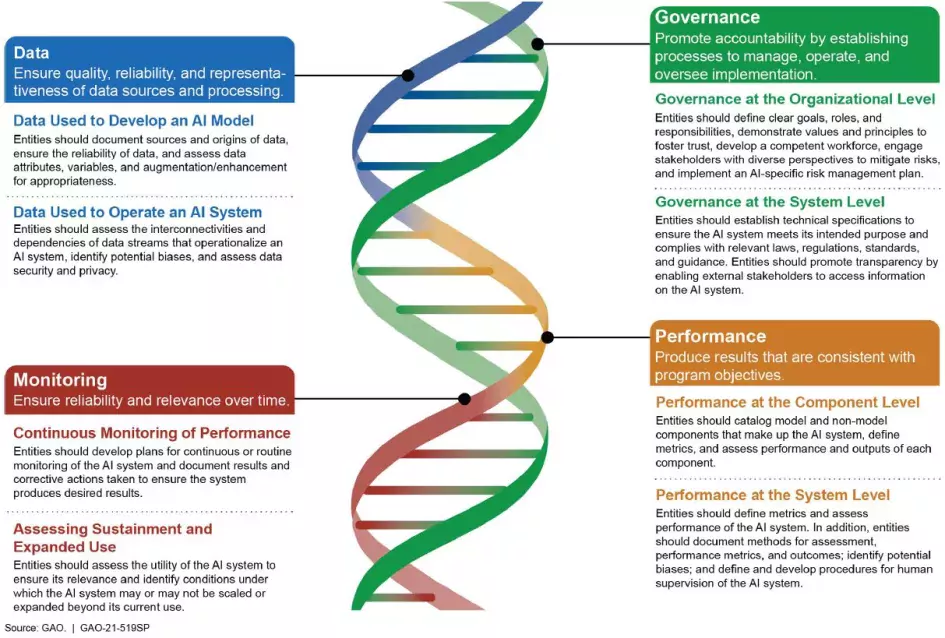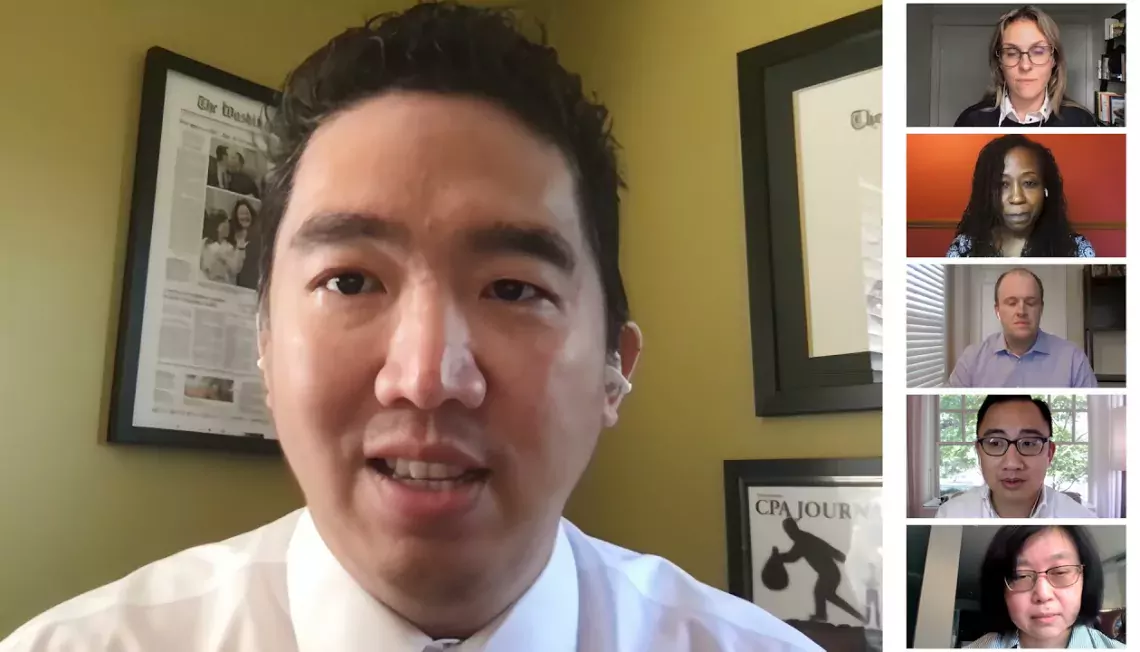Our New Framework for Artificial Intelligence (video)
Artificial intelligence (AI) is a transformative technology with enormous potential for good. It is not only ubiquitous in all aspects of life, it is beginning to permeate the public sector and beyond, including health care, agriculture, law enforcement, manufacturing, transportation, and defense. Much of the power of AI comes from its ability to rapidly detect patterns in data that humans simply cannot comprehend. Bringing accountability to responsible use of this technology is therefore paramount to address inherent complexities, risks, and societal consequences.
GAO developed our AI Accountability Framework to address accountability challenges in artificial intelligence and machine learning by laying out key practices, questions, and audit procedures. To develop the framework, we held a forum on AI oversight with experts from government, academia, industry, international partners, and nonprofits. Watch the video below to hear from some of these experts:
Our new AI Accountability Framework spans four key principles that encompass the full AI life cycle. Entities designing, developing, deploying, and monitoring AI can use this framework to root out hidden flaws and ensure that humans run the system—not the other way around. The below graphic illustrates key elements of our new framework.
Artificial Intelligence (AI) Accountability Framework
Image

To find out more about our new framework and the opportunities and challenges AI presents, check out our new report.
- Questions on the content of this post? Contact the WatchBlog team at blog@gao.gov.
GAO Contacts
Related Products

GAO's mission is to provide Congress with fact-based, nonpartisan information that can help improve federal government performance and ensure accountability for the benefit of the American people. GAO launched its WatchBlog in January, 2014, as part of its continuing effort to reach its audiences—Congress and the American people—where they are currently looking for information.
The blog format allows GAO to provide a little more context about its work than it can offer on its other social media platforms. Posts will tie GAO work to current events and the news; show how GAO’s work is affecting agencies or legislation; highlight reports, testimonies, and issue areas where GAO does work; and provide information about GAO itself, among other things.
Please send any feedback on GAO's WatchBlog to blog@gao.gov.






